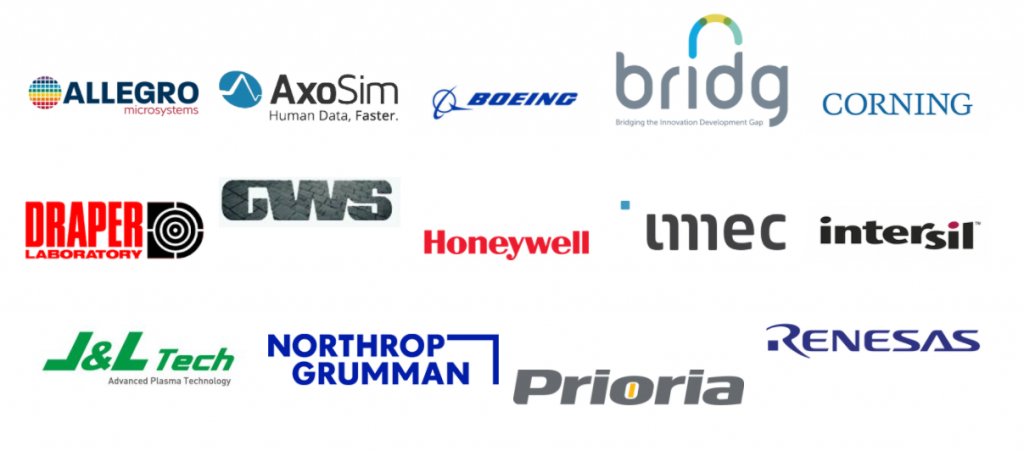
RESEARCH
RECRUITING
RELATIONSHIPS
Mission
To facilitate integration of novel materials, processes, devices and circuits into multi-functional systems through research partnerships between university, industry and government stakeholders.
Vision
Innovating more than Moore technologies for smart systems in the Internet of Things era.

Founded in 2014, the Multi-functional Integrated System technology (MIST) Center is a research consortium under the auspices of the Industry/University Cooperative Research Centers program at the National Science Foundation.


Research
- Leverage your money. Access a $1M annual reseach portfolio for only $50k
- Unlock IP. Enjoy royalty-free, non-exclusive licensing for all center intellectual property.
- Slash overhead. Over 90-percent of industry member fees go directly toward research expenditures.
Relationships
- Join with the right people at the right time at the right place.
- Connect with the MIST Center’s powerful conglomerate of intellectual minds.
- Build relationships with more than 40 cross-disciplinary faculty researchers at UF, UCF and UVA.

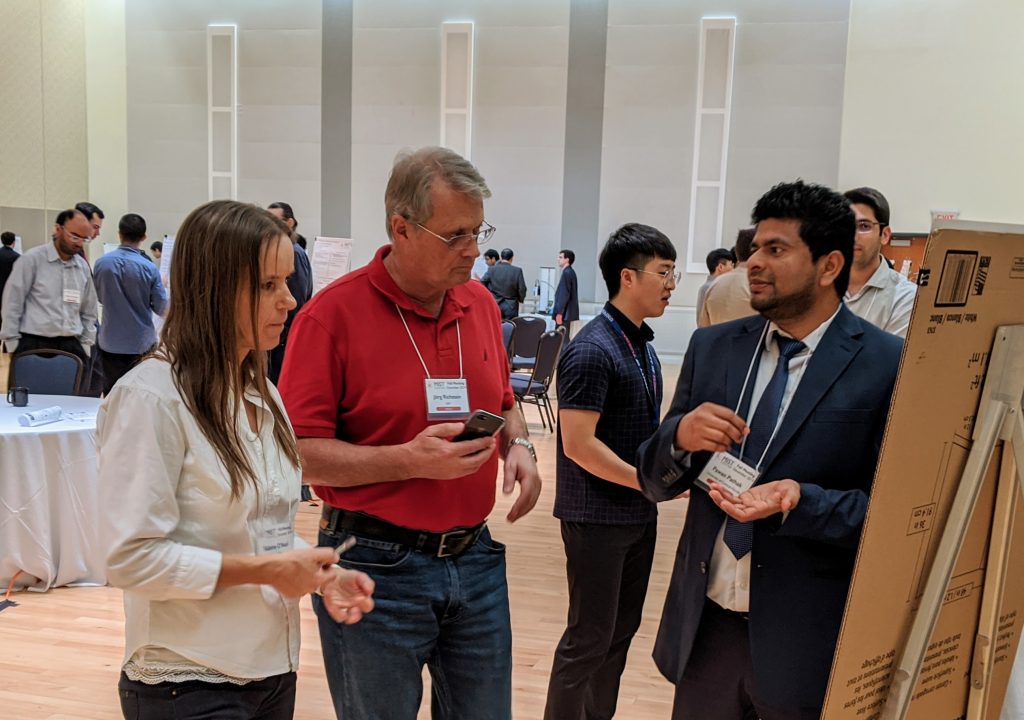
Recruiting
- Discover rising stars with a vested interest in your organization.
- Recruit familiar, proven engineers and scientists.
- Develop targeted internship opportunities for more than 23,000 highly skilled engineering students.
Pricing Table
University overhead on I/UCRC research is capped at 10%
Small Business*
$25,000
Annually
25 votes
Access to symposiums and seminars
Access to MIST biannual meetings
Unlimited project mentorship
Internship portal
NSF INTERN eligibility
*Only available to companies with 500 employees or less.
Full (1 Unit)
$50,000
Annually
50 votes
Access to symposiums and seminars
Access to MIST biannual meetings
Unlimited project mentorship
Internship portal
NSF INTERN eligibility
Full (2 Units)
$100,00
Annually
100 votes (maximum)
Access to symposiums and seminars
Access to MIST biannual meetings
Unlimited project mentorship
Internship portal
NSF INTERN eligibility
MIST University Leadership
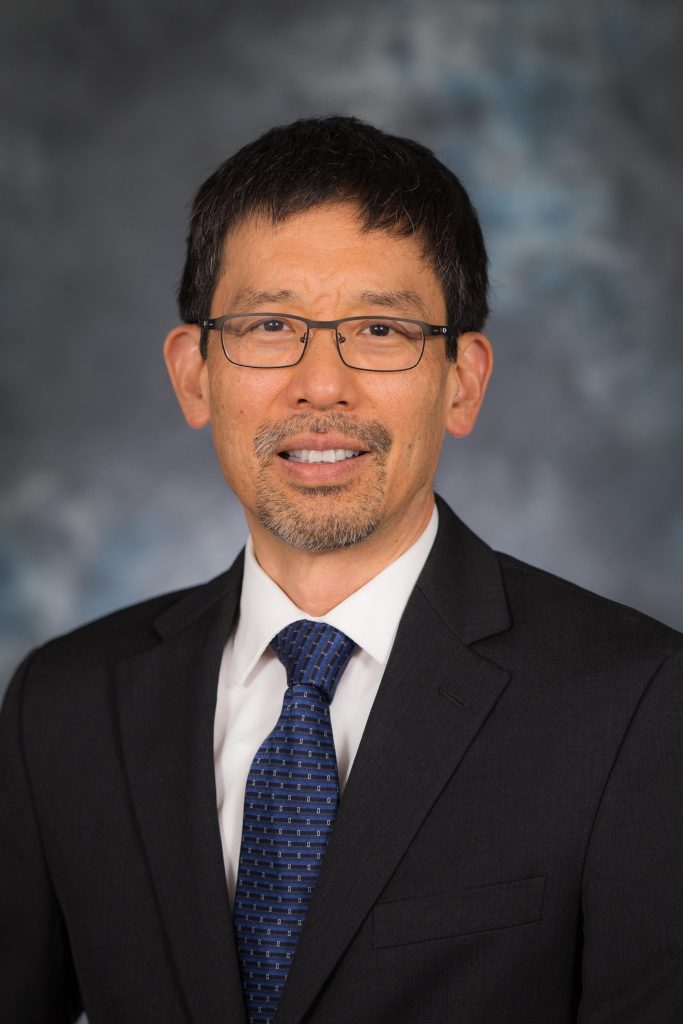
Center Director
Read Bio
Toshi Nishida received his Ph.D. (1988) and M.S. degrees in Electrical and Computer engineering and B.S. degree in Engineering physics at the University of Illinois at Urbana-Champaign. With colleagues and students, he has published over 130 refereed journal and conference papers and received three best paper awards. He also received the 2003 College of Engineering Teacher of the Year award. He holds six U.S. patents. He is a distinguished lecturer for the IEEE Electron Devices Society and a senior member of IEEE.
Dr. Nishida’s research interests include the development of reliable, high performance, multi-functional semiconductor devices and solid-state physical sensors and actuators for microsystems employing strained Si, SiGe, GaN, ferroelectrics, and polymers. Applications include biomedical, energy harvesting, logic, and micro-electro-mechanical systems.
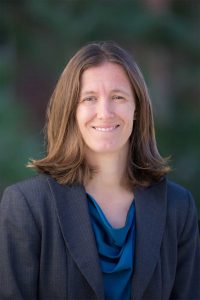
Center Deputy Director
Read Bio
Jennifer S. Andrew is a Margaret A. Ross Professor in the Department of Materials Science and Engineering at the University of Florida. Professor Andrew received a B.S. degree in Materials Science and Engineering from Northwestern University and a Ph.D. degree in Materials from the University of California, Santa Barbara. She performed postdoctoral work as a UC President’s Postdoctoral under Professor Michael Sailor at the University of California, San Diego. Jennifer joined the faculty in the Department of Materials Science and Engineering at the University of Florida in 2011.

Managing Director
Read Bio
Shelby serves as the center coordinator for all three MIST sites. His background is in marketing and project management. He has created and managed communications campaigns on a national scale for the biotechnology and construction industries.
Before joining MIST, Shelby served as a marketing project manager for NCCER where his accomplishments include increasing the organization’s marketing efforts on social media by 188 percent and developing a national program to create career pathways by connecting secondary and post-secondary career and technical education systems within the construction industry.
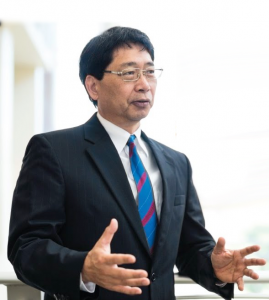
UCF Site Director
Read Bio
Jiann-Shiun Yuan (SM’92) received the M.S. and Ph.D. degrees from the University of Florida, Gainesville, FL, USA, in 1984 and 1988, respectively. Since 1990, after one year of industrial experience with Texas Instruments Incorporated, he has been a Faculty Member with the University of Central Florida (UCF), Orlando, FL, USA, where he is currently a Professor and the Director of the Secure CMOS Design and Reliability Laboratory, and the Co-Director of the NSF Industry/University Cooperative Research Center on Multi-Functional Integrated System Technology. He is a Founding Editor of the IEEE Transactions on Device and Materials Reliability and a Distinguished Lecturer for the IEEE Electron Devices Society. He was a recipient of the 1993 Outstanding Engineering Educator Award, IEEE Florida Council; the 1995, 2004, 2010, and 2015 Teaching Award, UCF; the 2003 and 2018 Research Award, UCF; the 2003 Outstanding Engineering Award, IEEE Orlando Section; and the 2016 Pegasus Professor Award, highest academic honor given to a Senior Faculty at UCF. He is a member of Eta Kappa Nu and Tau Beta Pi.
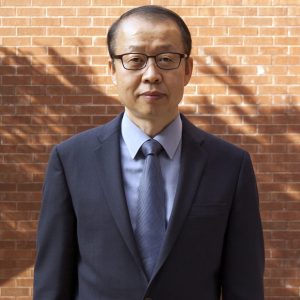
UCF Deputy Director
Read Bio
Hyoung Jin (Joe) Cho is a Professor in the Department of Mechanical and Aerospace Engineering at the University of Central Florida. He earned his PhD in Electrical Engineering from the University of Cincinnati in 2002, MS and BS in Materials Engineering from Seoul National University in 1991 and 1989, respectively. He worked as Research Engineer at Korea Electronics Technology Institute (KETI) from 1993 to 1997. He was a recipient of NSF CAREER award in 2004. His main research interest is in the development of microscale actuators, sensors and microfluidic components based on MEMS (micro-electro-mechanical systems) technology.
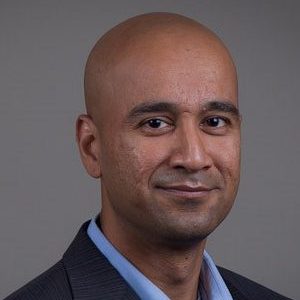
UCF Deputy Director
Read Bio
Swaminathan Rajaraman is a tenured academic and a successful entrepreneur. He is an Associate Professor in the NanoScience Technology Center and the Department of Materials Science and Engineering at the University of Central Florida (Orlando, FL). Prior to his academic appointment, he has worked in the MEMS industry and co-founded Axion BioSystems Inc. (Atlanta, GA), a world-leader in high-throughput Microelectrode Arrays (MEAs) and MEA systems. He has published more than 80 articles and holds 32 patents and applications.
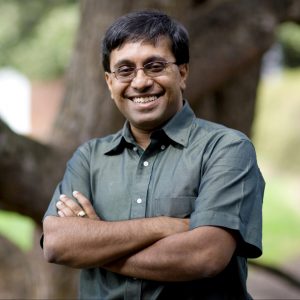
UVA Site Director
Read Bio
Avik Ghosh is Professor of Electrical and Computer Engineering and Professor of Physics at the University of Virginia. He has over 100 refereed papers and book chapters and 2 upcoming books in the areas of computational nano-electronics and low power devices, specializing in materials to systems modeling (DFT2SPICE), including 2D materials, thin films for photodetectors, molecular electronics, subthermal switching, nanomagnetic materials and devices, and nanoscale heat flow. Ghosh did his PhD in physics from the Ohio State University and Postdoctoral Fellowship in Electrical Engineering at Purdue University. He is a Fellow of the Institute of Physics (IOP), senior member of the IEEE, and has received the IBM Faculty Award, the NSF CAREER Award, a best paper award from the Army Research Office, the Charles Brown New Faculty Teaching Award and the All University Teaching Award. His group’s collaborative research with Columbia University on observing negative index behavior in graphene was voted by Physics World as one of the top-10 breakthroughs of 2016.

UVA Deputy Site Director
Read Bio
Nikhil Shukla is currently an assistant professor at the University of Virginia with a joint appointment in the department of Electrical & Computer Engineering, and the department of Materials Science and Engineering. He received his PhD from the University of Notre Dame in 2017. Nikhil’s research interests lie in co-designing new devices, circuits, and computational models to make computing more efficient. He has authored/co-authored over 70 journal and conference papers and has received the best paper award from IEEE TMSCS in 2017.
Industry Advisory Board (IAB)
IAB Alumni
